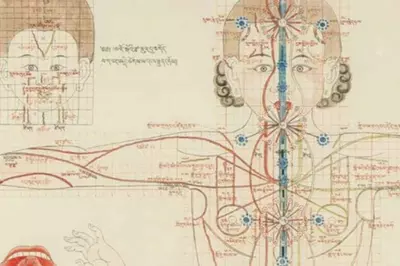Tibetan Medicine

What Is the Scientific Evidence for Tibetan Medicine?
For millennia, doctors of Tibetan medicine have done their own traditional research by carefully observing and documenting the effects of Tibetan therapies and medicines on their patients. This precise knowledge has been passed from one generation of Tibetan physicians to the next. Now Tibetan medicine is being researched using Western scientific methodology, although the number of studies is relatively small.
One area of research relies on the pharmaceutical model of scientific testing. These studies focus on identifying the active components in and efficacy of specific Tibetan medicines. Often the studies are carried out in vitro or in animal models. The results validate the bioactive components and demonstrate biochemical pathways showing a plausible mechanism of action. However, the limited availability of Tibetan medicines in the United States makes this type of research less relevant for the use of Tibetan medicine as self-care.
Throughout its long history, Tibetan medicine has advocated healing practices. Numerous studies have been published about the benefits of these interventions integral to Tibetan medicine: art therapy, aromatherapy, breathing techniques, food, healing touch and therapeutic touch, listening, massage, mindfulness, music therapy, presence, reflexology, Reiki, spiritually, and yoga.
Compassion, the essence of Tibetan medicine, is a philosophical stance of kindness toward everyone. Researchers are finding a positive relationship between compassion, health, empowerment, resilience, mindfulness, acceptance, and self-kindness.
Researchers at the University of Minnesota’s Bakken Center for Spirituality and Healing tested and refined two self-assessment tools based on Tibetan medicine as a holistic system: (a) Constitutional Self-Assessment Tool (CSAT) and (b) Lifestyle Guidelines Tool (LGT). Both tools had high content validity. The CSAT had moderate criterion validity, which increased for participants who knew the basic teachings of Tibetan medicine and did accurate self-assessments. To complete the tools, go to: Constitutional Self-Assessment Tool and Lifestyle Guidelines Tool.
Scientific studies report positive findings about Tibetan medicine as a holistic system. Researchers found that Tibetan medicine had beneficial effects on quality of life, sleep, disease regression, and remission in persons with cancer and blood disorders. Anthropological studies have produced qualitative interpretations of Tibetan medical theories and practices.
To read an overview of the latest research about Tibetan medicine, read: Cameron, M.E., and Namdul, T. (2020). Tibetan Medicine and You: A Path to Wellbeing, Better Health, and Joy. (Blessing by His Holiness the Dalai Lama). New York: Rowman & Littlefield.
More research is needed about Tibetan medicine. However, research into the overall efficacy is challenging because Tibetan medicine is a holistic system, so health results are not attributed to only one activity, component, or medicine. New qualitative methodologies may be needed to study Tibetan medicine holistically. Researchers are particularly interested in determining how Tibetan medicine can impact immunity, longevity, chronic disease, and regeneration.
Article Updated: May, 2020


